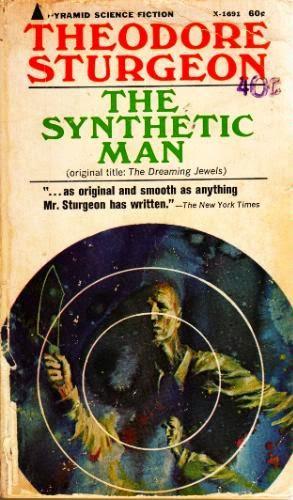

In 2001 The Dreaming Jewels was nominated for a Retro Hugo for best novella. Science fiction author Damon Knight, however, faulted the novel as "curiously uneven." While he praised the novel's opening half - "Sturgeon at his brilliant best: the warm insight, the compellingly real background, the exciting narrative"-he felt the work deteriorated sharply as it closed: "the characters become insipid and lifeless, the writing flat, and the action a humorless copy of Victorian melodrama." recommended as much for its people and the way it is written as for the ramifications of the plot." Schuyler Miller found The Dreaming Jewels "compulsively fascinating. fresh, creative imaginative literature.". Francis McComas praised it as "a warm and beautifully human story. Science fiction anthologist Groff Conklin characterized it as "a moving and brilliant piece of imaginative writing." Science fiction editors Anthony Boucher and J. She knows that Horty is the key to executing Monetre's destructive plan, and the only one powerful enough to stop him. Zena, a carnival performer, takes Horty under her wing. Having discovered intelligent nonhuman life in the form of crystal-like jewels, Monetre works to unlock the source of their great power and, ultimately, destroy mankind.

The owner of the carnival, Pierre Monetre, is a disgraced doctor and scientist with a deep hatred of mankind.

Disguised as a girl, Horty takes refuge among the "strange people" in a traveling circus. It was his first published novel.Ĩ-year-old Horton "Horty" Bluett runs away from his abusive family, carrying only a smashed jack-in-the-box named Junky. The Dreaming Jewels, also known as The Synthetic Man, is a science fiction novel by American writer Theodore Sturgeon.


 0 kommentar(er)
0 kommentar(er)
